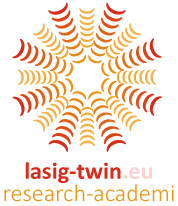introduction:
Combining regenerative and classical fossil energy sources is a major issue to be addressed in order to find solutions to the challenges of modern societies with respect to technology advances and low carbon footprint at the same time. Fossil energy sources will remain on the tableau due to their energy density and the mobility of combustion engines for cars, power trains, aviation, space and cogeneration, but only an efficient and low fuel usage will allow those to contribute to a low carbon footprint mix of energy.
Laser based ignition is believed to be a major contributor to efficient fossil fuel usage and thus a lower carbon footprint of mankind due to the variability and shapeability of laser pulses that replace the electric spark to ignite the gas-fuel mixture. But a number of technological challenges need to be proved before laser spark plugs can realistically be adopted. For instance, the diode laser pump must demonstrate that it can operate continuously for 10.000 hours; also the pressure barrier window and lens must stay clean for this time.
European research and development is strong in the fields of laser ignition, competing with the USA and Japan. Interestingly enough, science and technology for laser spark plugs in Europe are also situated in Romania, a low developed country of the EU.







